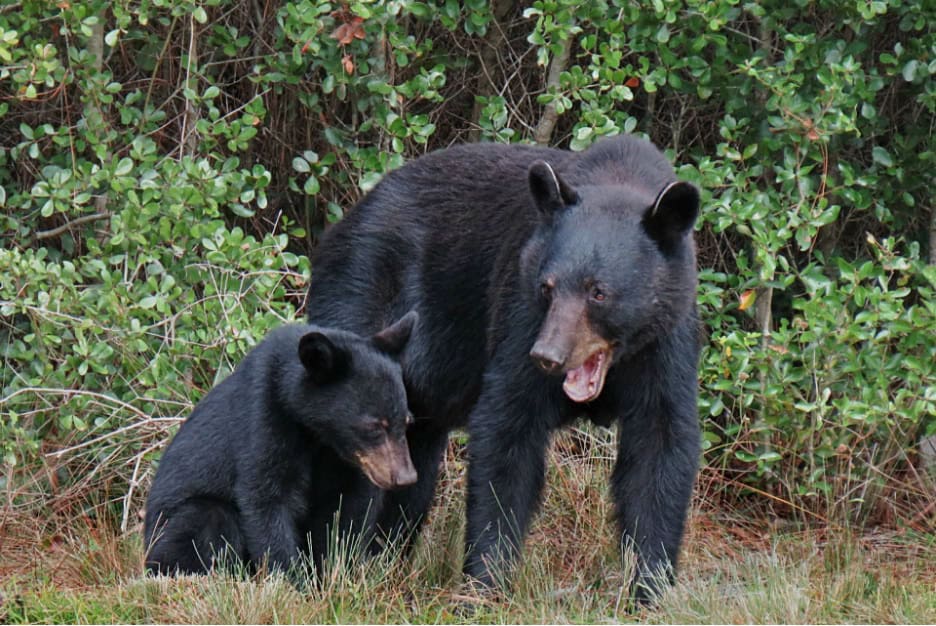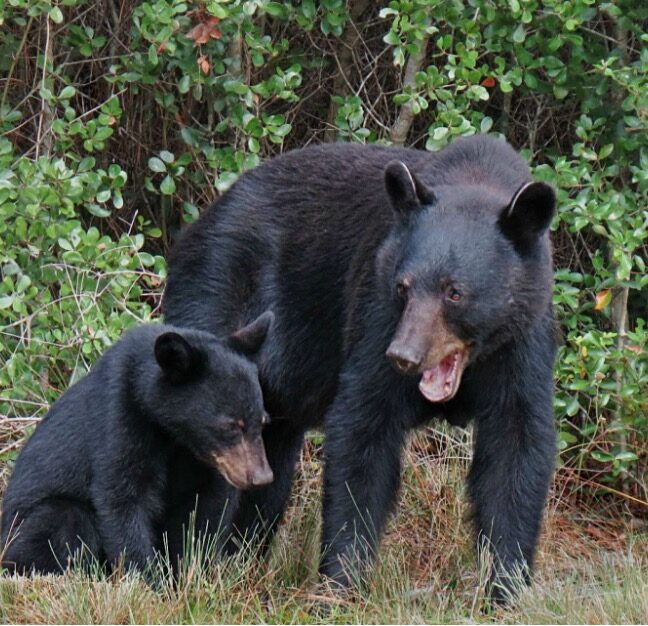
Although it is rare, bears have been known to injure people in Florida. Here are some ways you can be aware and informed in case you find yourself near a bear.
According to the Florida Fish and Wildlife Conservation Commission, 48 “documented incidents of physical contact between a person and a black bear in Florida” have occurred since 2006 as of Feb. 15. Most of these have been in the northern part of the state. Only three of these incidents have taken place in the southern portion of the state. Two were in Naples in 2008 and 2018, while the other one was in Fort Myers in 2009.
Typically, bears will attack when they feel threatened or are defending their food or cubs, according to the FWC. Bears may also warn people by clacking their teeth together, moaning, blowing, huffing, stomping the ground, or bluff charging.
The following are lists of what the FWC says people should or should not do if they have a close encounter with a bear:
DO
• Remain standing upright.
• Speak to the bear in a calm, assertive voice.
• Back up slowly toward a secure area, be sure you are leaving the bear a clear escape route.
• Avoid direct eye contact — bears and other animals may view this as aggressive behavior.
• Stop and hold your ground if your movement away seems to irritate instead of calm the bear.
DO NOT
• Make any sudden or abrupt movements.
• Run — running can trigger a chase instinct, and bears can sprint up to 35 mph.
• Play dead — black bears eat things that play dead or are dead.
• Climb a tree — black bears can climb 100 feet up a tree in 30 seconds.
• Approach or surprise a bear, especially one that may be injured.
Additionally, if a black bear does attack you, you should aggressively fight back, according to the FWC.
The FWC has three levels of bear behavior — normal, concerning, and threatening:
• If a bear is far away from people, easily scared or startled, interacting with trees nearby, or eating its natural diet, then the bear is behaving normally. The FWC says they can be observed from a safe distance but should not be approached.
• Bears that are not scared by loud noises, seen eating food, garbage, and other things not in its diet, or are protecting its food or cubs would be considered concerning. At that point, the FWC wants people to find a safe place away from the bear and call the FWC Wildlife Alert Hotline at (888) 404-3922 or #FWC or *FWC from your mobile phone.
• Finally, if you encounter a bear that actively approaches people or pets, stays near areas people usually use, enters a tent, building, or vehicle, makes contact with a person, or eats food, garbage, and other things not in its diet when people are present, that bear is exhibiting threatening behavior. Similar to when bears exhibit concerning behavior, the FWC recommends you should be in a safe place away from the bear and call the hotline. The manager should consider closing the area as well, according to the FWC.
One statistic that stands out is that 33 out of the 48 incidents, or 68.75 percent, involved a dog. If you have your dog or another pet with you and you are in an area where bears may be present, the FWC says to try to minimize the time pet food is outside, use a nonretractable leash, walk your pet during the day, and bring noisemakers or bear spray.
According to the FWC, if your pet does come into contact with wildlife like a bear, do not try to separate the animals. Instead, go to a safe place, then spray bear spray or water at it and make loud noises to try to break it up.






